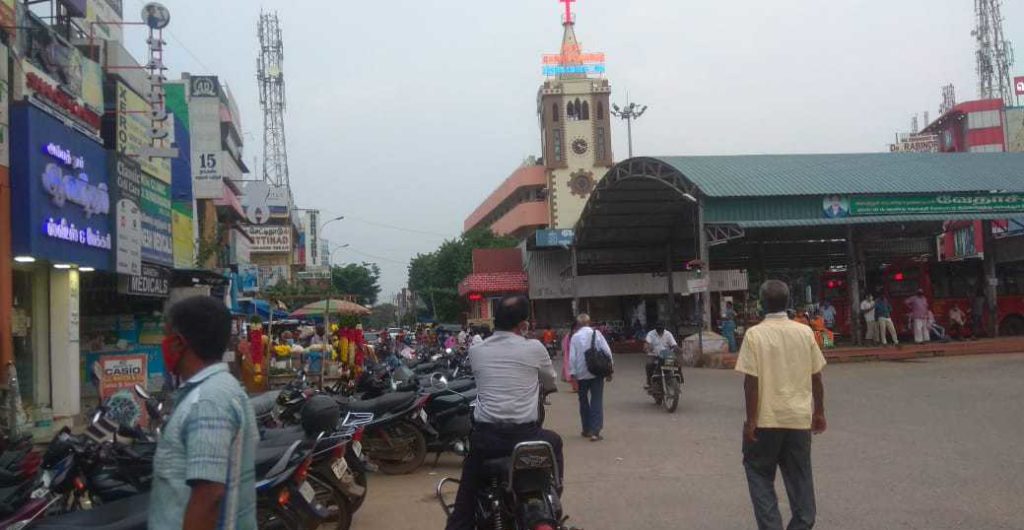Feasibility study for gas turbine stations in North Chennai
TANGEDCO plans to conduct a feasibility study to install gas turbine power stations in North Chennai to produce 2000 megawatts of electricity. The natural gas pipeline set-up necessary already runs from Ennore to Thoothukudi. A detailed project report will be prepared based on the study.
Clean energy production is on the agenda of TANGEDCO which will build gas-based plants at unused old thermal station buildings in Ennore. This move comes in the wake of the increasing cost of importing natural gas.
At present, Basin Bridge has a gas turbine station which can generate 120 megawatts of power. TANGEDCO is mulling generating Liquefied Natural Gas, which will reduce the input cost. Currently, this station produces fuel from naphtha for Rs. 20 per unit in Chennai.
Source: The Hindu
Ambattur residents demand mini-bus services in their area
In the Chennai Metropolitan Development Authority’s public consultation for the Third Master Plan’s Vision Document, Ambattur residents demanded mini-bus services to reduce private transport plying their roads. The increase in private vehicles has led to increased pollution and issues with on-street parking.
Residents said that people use bikes to reach bus stations and markets in Ambattur and that many are forced to spend a lot of money on autorickshaw rides to reach key destinations. They made a case that there are 15,000 families in Ambattur and 220 families in Thiru vi ka Nagar who will find the launch of mini-bus services extremely useful in travelling to and from Ambattur.
MTC officials have asked the residents to submit a request for action to be taken on the issue.
Source: The Times of India
Read more: How citizens brought the mini-bus back to Chitlapakkam
Schools in Chennai teach climate change
Citizen Consumer and Civic Action Group (CAG) has piloted a curriculum on climate change in a few Chennai schools to create awareness about the subject. The material on the subject includes concepts, causes and impacts of climate change and is taught to middle school students at present.
CAG also plans to reach out to GCC and the State Education Department to include climate change as a subject in government and corporation schools.
Stating that the government has launched Climate Mission to create climate literacy, CAG notes that this initiative is in sync with the government’s vision.
Source: DT Next
Green Transferable Development Rights (TDRs) to save waterbodies in Chennai: CMDA
CMDA plans to save waterbodies and set up buffer areas by offering green Transferable Development Rights (TDRs) for acquiring areas near waterbodies. An owner can build more than the limit for a stipulated area if they have TDR in the form of Floor Space Index (FSI).
Currently, the planning bodies give development rights certificates via FSI in square metres of built-up areas.
The buffer areas for waterbodies will be 50 metres from the boundaries of Pallikaranai marshland, rivers, Buckingham canal and all lakes that are more than 10 hectares. Similarly, lakes of less than 10 hectares will get buffer zones of 20 metres and nullahs and canals in Chennai will have buffer zones of 10 metres.
Experts suggest that TDRs along waterbodies must lie with the government and not with people, as it may lead to illegal development. They also urged that the TDR system must be brought under the Third Master Plan.
The TDR model has been implemented in Mumbai and Hyderabad to protect eco-sensitive areas.
Source: The New Indian Express
Read more: How blue areas become grey: Reclassification of waterbodies in Chennai
CMWSSB pays Rs. 1.2 crores as compensation for polluting Korattur Lake
The Tamil Nadu Pollution Control Board has asked the Chennai Metropolitan Water Supply and Sewerage Board (CMWSSB) to pay Rs. 1.2 crores as a fine for releasing untreated sewage water into Korattur lake.
CMWSSB has been told to finish the underground sewerage work in Zone 7 so that the untreated sewage does not get into the Ambattur lake surplus that drains into Korattur lake. While the work is underway, Metro Water is to make provisions for temporary sewage collection in the sewage inlets that lead to the Ambattur surplus canal. The sewage will be sent to a sewage pumping station or treatment plant until underground sewerage work is completed.
Source: DT Next
[Compiled by Padmaja Jayaraman]
